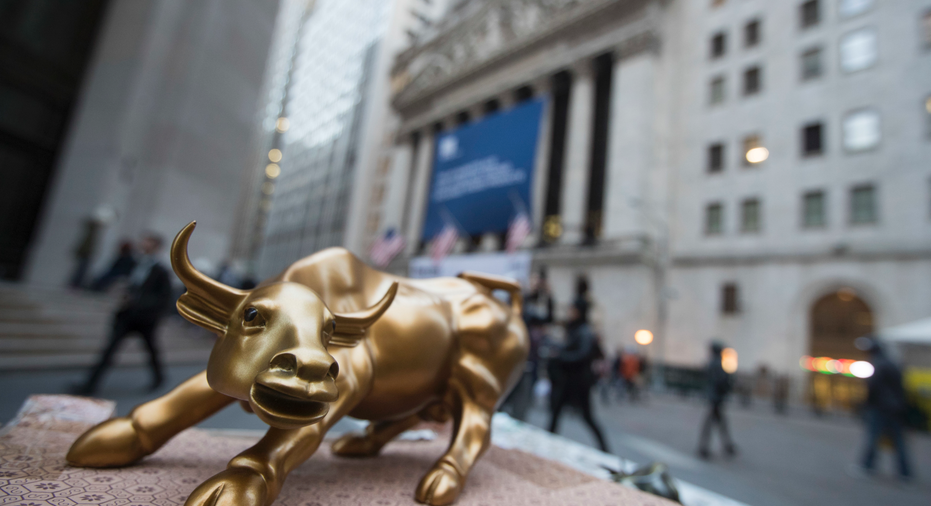Full steam ahead: Funds of all types rose again last quarter

NEW YORK – Utopia is still in effect for fund investors.
Funds of all types again powered higher in the third quarter, as stocks and bonds around the world rose in unison. Not only did investors get strong returns from their funds, they also got them with remarkably few headaches along the way.
Consider the largest mutual fund by assets, Vanguard's Total Stock Market Index fund, which sits at the heart of many 401(k) and other accounts. It returned 4 percent for the quarter, as of Wednesday. It's the eighth straight quarter where the fund has made money, and the 19th in the last 21.
The usual trade-off that investors accept for the chance to make big money in stocks is the possibility of big drops along the way. But only twice during the quarter did investors have to stomach a day where the fund lost more than 1 percent. Compare that with two years ago, when investors had to deal with a dozen such days in the third quarter.
Such steadiness made it an even easier decision for investors to hold on to their mutual funds and exchange-traded funds, which proved to be another good bet this past quarter. Roughly 95 percent of mutual funds tracked by Morningstar had positive returns for the three months through Wednesday. Even categories of funds that struggled earlier in the year, such as energy stock funds, did well from July through September.
Just don't assume utopia will continue. After their phenomenal run in recent years, stock and bond funds will likely offer more modest returns in the future, analysts say. Stock prices are higher than usual, relative to corporate profits, which makes them look more expensive. Bond funds, meanwhile, face the challenge of an expected rise in interest rates, which would cause their prices to fall.
Of course, many analysts were saying the same thing at the start of this year and even a year before that, only to see funds continue to do well.
Here's a look at some of the trends that shaped the third quarter for fund investors:
— Bond funds were resilient.
Heading into this year, many investors were bracing for losses from their bond funds, even though they're supposed to be the safe parts of their portfolios.
The fear sprung from expectations that interest rates would keep jumping. Rates began leaping after November's election on speculation that faster economic growth and inflation were on the way, and the 10-year Treasury yield jumped to 2.60 percent from 1.85 percent in a little more than a month. Rising rates mean newly issued bonds pay more in interest, and that in turn makes the older, lower-yielding bonds in funds' portfolios less attractive and undercuts their prices.
But reality has been the opposite of expectations this year, and the yield on the 10-year Treasury hit its low point for the year during the third quarter, at a shade above 2 percent. The drop in yields pushed up the price of bonds in funds' portfolios, and most bond funds offered positive returns last quarter.
The largest bond fund by assets, Vanguard's Total Bond Market Index fund, returned 0.6 percent for the quarter through Wednesday. That's more modest than in prior quarters, but it's much better than the 3.2 percent loss it recorded in last year's fourth quarter. Funds that invested in riskier bonds did even better during the quarter.
— Stock funds were strong again, and smaller-stock funds closed the gap.
Businesses are making bigger profits again, and a parade of better-than-expected earnings reports from companies during the quarter helped to lift all kinds of stock funds.
Funds that focused on the smallest stocks were notably strong, after lagging other stock funds earlier in the year. The DFA USA Small Cap fund is one of the largest that focuses on smaller stocks, for example. It returned a little less than 1 percent in each of the first two quarters of the year, but it jumped to a 5.1 percent return in the third quarter, as of Wednesday. President Donald Trump recently unveiled his hopes for cutting tax rates on U.S. businesses, and smaller companies may get an even bigger benefit than their larger rivals.
— Foreign funds led the way.
Finally, economies around the world seem to be heading in the same upward direction. From Latin America to Europe to Asia, economic indicators are improving, and their stock markets are too. Many of these markets have also been lagging behind their U.S. counterpart for years, which means analysts see them as more affordable.
Latin American funds had some of the quarter's most eye-popping gains. Brazilian stocks jumped on expectations for better corporate earnings and a more stable political environment. Fidelity's Latin American funds surged to a 17.2 percent return in the quarter, as of Wednesday. That's a better performance than it's had in six of the last seven full years.
Chinese stocks were also strong last quarter, which helped funds that focus broadly on emerging markets add to their year-to-date gains. These funds were hit hard last year by fears that Trump's White House win would lead to less global trade. Emerging markets have also often struggled in the past when the Federal Reserve was raising interest rates.
But the dollar's value has weakened this year, which helps emerging markets. Oppenheimer's Developing Markets fund, the largest actively managed fund focused on emerging markets, returned 7.5 percent for the quarter as of Wednesday.



















